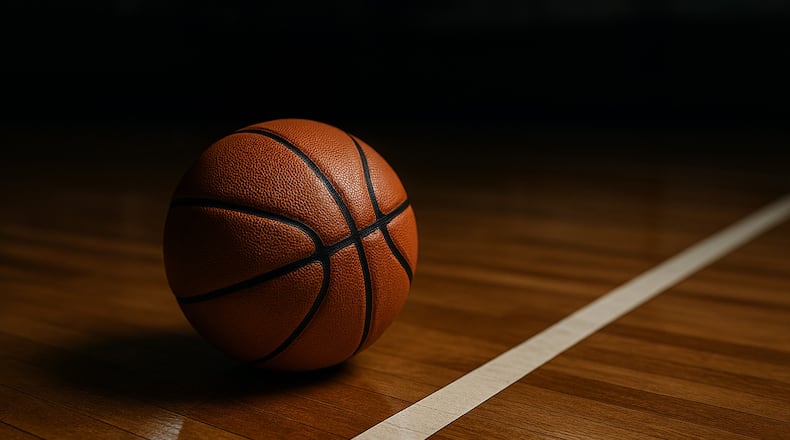According to ESPN, the NCAA was planning on allowing its student-athletes to bet on professional sports, beginning on November 1. The NCAA, however, took a pause from this decision after it was called to Capitol Hill to discuss this decision with legislators.
Now, according to a report in the Case Western Reserve Observer, the sports betting rule will go into effect on Nov. 22. When implemented, college athletes and athletics department staff members can place wagers on any professional sports game. However, college athletes are not allowed to share insider information related to college competitions or partner with sportsbooks in connection with championship events. Also, betting on college sports remains strictly forbidden.
Has the NCAA set up enough guidelines to protect its athletes, or is this just a slippery slope that will follow the betting scandals in the NBA and MLB?
Pincin and Thompson say students are especially at risk. Betting apps are marketed with slick, gamified features and celebrity endorsements and often target men ages 18 to 34 — the most vulnerable group for gambling disorders, according to the National Council on Problem Gambling.
A UC San Diego study found that online searches for gambling addiction help surged as much as 67% in states like Ohio — now the nation’s fourth-largest sports betting market. In 2024 alone, Ohioans wagered nearly $9 billion.
Thompson and Pincin say state-level regulation isn’t enough. They support the SAFE Bet Act — a federal bill that would ban college prop bets, restrict advertising and limit credit card betting — but argue that doesn’t go far enough.
Credit: SCOTT HUCK
Credit: SCOTT HUCK
Thompson calls for five minimum reforms: the identification and exclusion of problem gamblers, national advertising laws akin to tobacco, federally funded awareness campaigns, addiction recovery funding and strict limits on the size and volume of bets. All these reforms are designed to push back against the prevailing million-dollar advertising campaign.
“Even Gov. Mike DeWine of Ohio has acknowledged the danger of prop bets — but the market just keeps expanding,” Thompson said. “And when the leagues and states profit off this, they have little incentive to stop it.”
As betting becomes more normalized at games, on campuses and on phones, the professors say students deserve clarity and caution.
“Right now, it’s an unfair fight,” Thompson said. “And we want young men to know great danger exists for those that gamble on sports.”
Thompson spent much of his professional career in legal battles, serving as a judge advocate in the Judge Advocate General’s Corps (JAG) branch of the United States Air Force. Meanwhile, Pincin has been in college classrooms across the United States teaching economics and business principles. Their professional expertise and love of sports raised their concern over the sports gambling crisis in America.
“We were watching these broadcasts, and the ads were everywhere,” Thompson said. “It felt very aggressive and predatory, and it sparked a conversation we’ve been having ever since.”
That conversation has taken on new urgency. In the past month, multiple federal indictments — including one involving two Cleveland Guardians pitchers — have rocked professional sports, and Congress has launched a formal inquiry into the NBA’s handling of gambling-related risks.
In early November, Guardians pitchers Emmanuel Clase and Luis Ortiz were indicted for allegedly manipulating pitches to rig in-game prop bets, helping bettors win hundreds of thousands of dollars. Major League Baseball responded swiftly, suspending both players and imposing a $200 cap on specific prop wagers — bets based on outcomes like pitch speed or strikeouts rather than the final score.
“These scandals prove what we’ve been saying: This barely regulated online gambling system is wide open for abuse,” said Thompson. “Because of the sportsbooks’ relentless advertising, what was once seen as vice young men now see as a normal part of sports — but the consequences are real: addiction, unmanageable debt, relationship problems and more.”
Days earlier, the U.S. Senate Committee on Commerce, Science, and Transportation sent a formal letter to NBA Commissioner Adam Silver demanding all records of internal investigations into gambling misconduct since 2020. The committee, led by Sen. Ted Cruz, warned that “sports betting scandals like this one may lead the American public to assume that all sports are corrupt.”
Cedarville University, an evangelical Christian institution in southwest Ohio, offers undergraduate and graduate residential and online programs across arts, sciences and professional fields. With 7,265 students, it is among Ohio’s largest private universities and is ranked among the nation’s top five evangelical universities in the Wall Street Journal’s 2026 Best Colleges in the U.S. Cedarville is also known for its vibrant Christian community, challenging academics and high graduation and retention rates. Learn more at cedarville.edu.
About the Author

